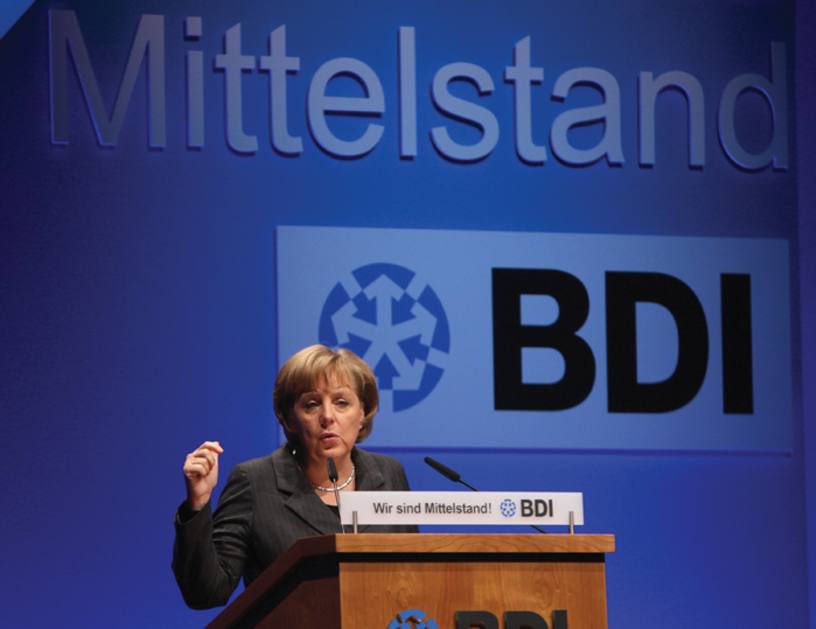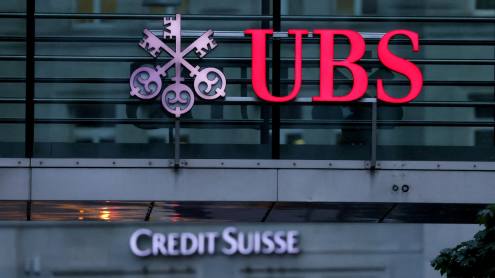The robustness of German bank lending to the country's small and medium-sized enterprises (SMEs), the famous mittelstand sector, is often cited as a powerful success story piercing through the wider narrative of Europe's looming SME credit crunch. The popular assumption is that, while businesses in other countries battle for credit, the German mittelstand enjoy access to a steady stream of financing.
Yet a recent survey published by Commerzbank betrays what has become more than a niggling worry within the German financial sector – despite favourable borrowing rates, bank lending to SMEs is not at the level it could be. Released in May, the survey found that market uncertainties and the spiralling eurozone debt crisis have made already cautious German entrepreneurs become even more nervous about borrowing. The report warns that German businesses are, as a consequence, foregoing opportunities to expand using crucial leverage.
“That the euro crisis has had an impact in terms of economic psychology may be seen from the following example: in response to the question as to which consequences are feared when it comes to financing, nearly one-third of the medium-sized entrepreneurs stated worries about interest rates and the repayment of loans. And this even though interest rates are currently lower than ever before,” says Markus Beumer, a member of the board of managing directors of Commerzbank, in reference to the report.
“From the companies' perspective, they do not need the debt burden, and they are reluctant to invest. The fear of another financial crisis occurring has also not decreased significantly,” adds Rüdiger Rass, a financial engineering specialist in the corporate banking division at Commerzbank.
Still healthy
Commerzbank's argument fits into the growing consensus that, given the relative strength of the German economy and its SMEs, lending in the sector is somewhat lacking in dynamism. Lending figures in Germany are still healthy, especially in comparison with neighbouring countries. In recent months, medium-sized family businesses have invested heavily in strengthening their market position, according to the Institute for the Mittelstand (IFM). In 2011 in particular, investments in capacity expansion, productivity enhancement and quality improvement were noted. This trend looks set to continue. A study released in May by the Bundesverband der Deutschen Industrie (BDI) federation and Deutsche Bank found that more than 40% of Germany’s largest family-run companies want to take on more staff this year, and half aim to boost investments.
And Germany's competitive financial model is widely regarded as particularly advantageous for SMEs. It features not only large commercial banks, but local savings banks, known as sparkassen. These are obliged to serve their local communities by satisfying the credit requirements of local businesses. That the sparkassen increased their lending by 17% during the financial crisis, capitalising on the retrenchment of larger organisations, highlights the favourable dynamics of the multi-layered German system.
It has always been difficult to make [German] entrepreneurs understand the informational needs of the bank, and in the crisis the banks have damaged their reputation
“In Germany, the regional and co-operative banks are a really good partner for the mid-market. WGZ Bank and NordLB, for example, have worked very hard on this segment in recent decades,” says Joerg Maukisch, head of consulting and corporate finance at the IFM.
Even the normally outward-looking large commercial banks such as Deutsche Bank now claim to be refocusing their attention towards the domestic market, including the mittelstand, in the aftermath of the global credit crunch.
“The crisis, the performance of the German economy therein, and the SME sector in particular, has further highlighted the value of its home market to Deutsche Bank,” says Cornel Wisskirchen, the co-head of German mid-caps at Deutsche Bank.
Below potential
Nonetheless, the European Central Bank’s latest survey on access to finance for SMEs corroborates the position that bank lending to businesses in Germany is currently falling short of its potential. The uptake of bank loans in this sector in Germany during the period October 2011 to March 2012 was only 1% above the EU average and less than in France and Belgium.
Moreover, outsiders often hail the greater state role in financing SMEs in Germany as proof of how small businesses can thrive in a social market capitalist system. State support to German SMEs has been estimated at €500m per annum. But the use of grants and subsidised bank loans by German SMEs is also below the European average, according to the ECB.
The conundrum of uninspiring borrowing rates in a relatively healthy financial and economic system is one that experts across the financial sector are currently grappling to explain. The damage that many of the larger commercial banks inflicted on their own reputations in the run-up to the financial crisis is partly to blame, says Hans-Peter Burghof, the director of the Institute of Banking and Financial Services at the University of Hohenheim.
“In particular, the larger banks with international ambitions treated their SME clients rather badly in the 1990s, as they preferred investment banking that, due to faulty regulation, required much less equity capital and could thus generate much higher return on equity,” he adds.
Damaged relationship
Several German banks also stand accused of selling highly speculative derivatives to their customers to hedge interest rate risks. In some cases, these products presented a serious risk to the businesses themselves. A German federal court ruled against Deutsche Bank in March 2011 in a lawsuit filed by a paper company that had lost money on an interest rate swap, and this decision has triggered a string of other lawsuits against large banks.
The financial crisis has also allegedly exacerbated the reserved and at times even distrustful attitudes of the typical German entrepreneur. Such an entrepreneur has historically been less than receptive to the probing approach of German banks seeking to collecting client information.
“The classic German entrepreneur highly [values] his independence and prefers to keep his plans to himself. It has always been difficult to make these entrepreneurs understand the informational needs of the bank, and in the crisis the banks have damaged their reputation," says Mr Burghof. "Why give information to someone who so obviously is not even able to manage his own business properly?”
Moreover, another German banking expert, Dr Niels Angermueller of Harz University, argues that many of Germany's commercial banks, having overlooked the SME and retail market in the past, will struggle to win over clients when pitting themselves against smaller regional banks.
“The regional financial institutions never neglected small businesses and were always there for them. That will make it difficult for the larger banks to get their foot in the door now. And if I were running a small business myself, in all honesty, I would not necessarily rely on them,” he says.
SME bond market
The financial crisis also features in the contrasting argument emphasising the reluctance of German banks to lend rather than the aversion of German companies to borrow. German banks have indeed reined in their balance sheets since the financial crisis, and the need to satisfy capital requirements such as Basel III will inevitably reduce their future lending capacities.
Moreover, the recent proliferation of mittelstand bond exchange markets as an alternative to raising money through bank loans is widely held to be a direct result of such reluctance among banks to supply smaller firms with capital. Since the end of 2010, four out of Germany’s eight stock exchanges have launched their own mttelstand bond markets. The industry, which has an estimated value of €2.5bn, is expected to continue expanding.
Proponents of bonds contend that they have become an attractive alternative method of generating capital at a time when banks are struggling. At the same time, they preserve the autonomy of mittelstand and boost their public profile. But Mr Burghof warns that the trend may, in some cases, be more attributable to the underlying weakness of firms that want to raise funds without their performance being subjected to scrutiny.
“Companies that have some problems persuading their banks about their own creditworthiness feel that it might be good to share the risk with other market participants,” he says.
Limited success
German banks and commentators also point out that the bond market remains relatively small and argue its growth will inevitably be limited. A recent study by Deutsche Bank and the German industrial lobbying organisation BDI endorses this hypothesis. The study found that more than 86% of Germany’s largest family firms have minimal involvement in the capital markets, relying on bank credits for financing.
The lukewarm enthusiasm for bonds is not least due to the higher levels of risk in the sector, say sceptics. The de-listing of one issuer due to insolvency in March 2012 was a stern reminder of the hazards that come with the territory. This may deter circumspect business owners from bond borrowing in an uncertain economic climate.
And although some maintain that many German banks lack appetite for exploiting the SME market to its full potential, experts still broadly agree that the situation for German mittelstand is generally positive. For this reason, Germany's competitive and diverse system ultimately deserves much of the praise it attracts.
“At the end of the day, the German model is the reason why the country and its SMEs do not face the same intensity of credit problems as other countries. We are not perfect but there is a lesson there. Other countries could draw on it,” says Mr Angermueller.












